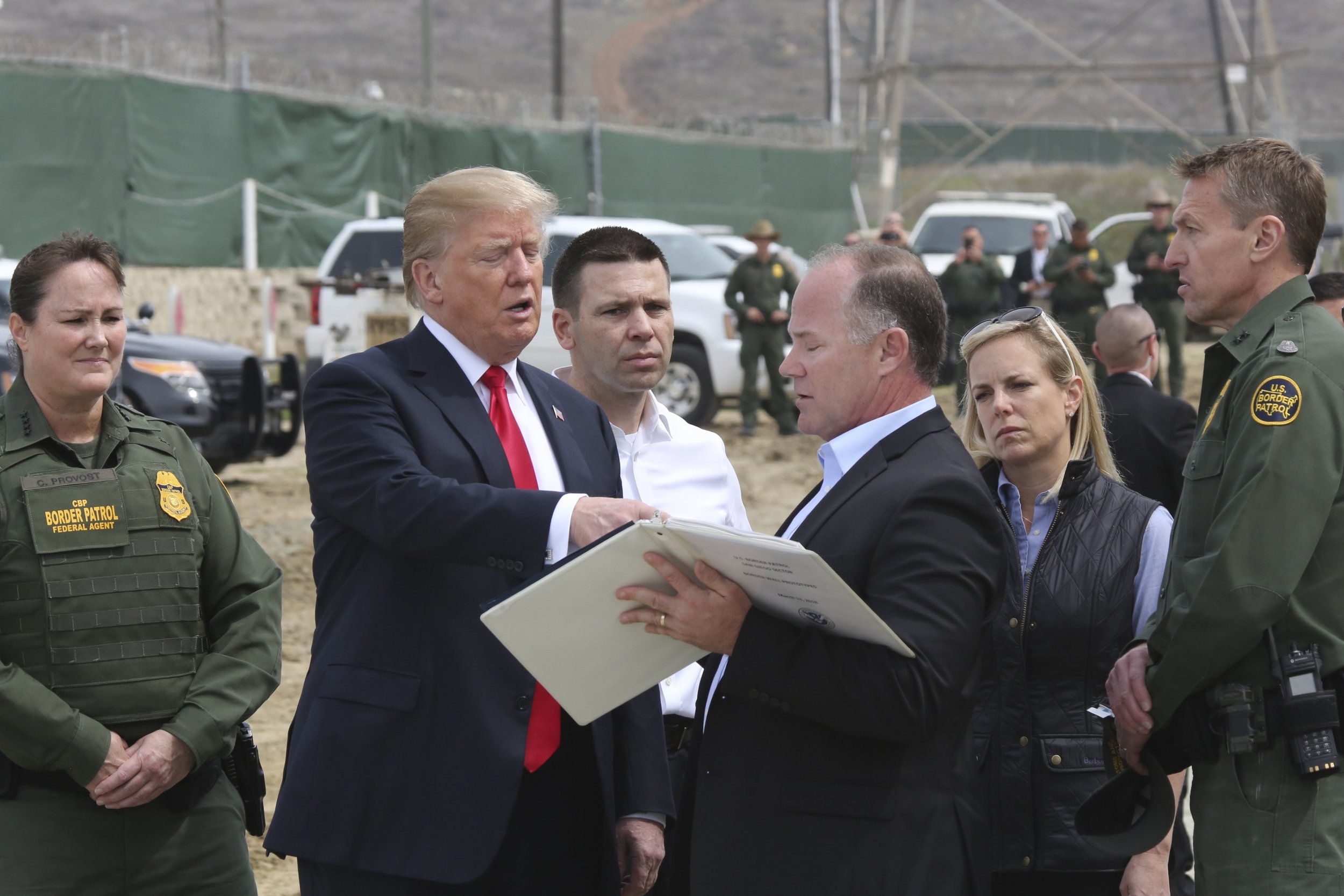
President Donald Trump announced Thursday that he intends to place a 5 percent tariff on all imports coming from Mexico into the United States until America's neighbor to the south does more to curb migration from other nations to the U.S.
In a two-part statement on Twitter, Trump gave Mexico one-week's notice that he intends to impose the tariff and that his administration plans to increase that tariff to put more pressure on Mexican leadership to reduce migration.
"On June 10th, the United States will impose a 5% Tariff on all goods coming into our Country from Mexico, until such time as illegal migrants coming through Mexico, and into our Country, STOP," wrote the president. "The Tariff will gradually increase until the Illegal Immigration problem is remedied, at which time the Tariffs will be removed. Details from the White House to follow."
A subsequent statement from the White House said that if the administration determines on July 1 that the "crisis persists", the tariffs will be raised to 10 percent. On August 1, Trump could again increase the tariffs to 15 percent, followed by 20 percent on September 1 and 25 percent on October 1.
"Tariffs will permanently remain at the 25 percent level unless and until Mexico substantially stops the illegal inflow of aliens coming through its territory," reads the White House statement.
The North American Free Trade Agreement gradually eliminated many tariffs on goods going between the Mexico, Canada and the U.S., allowing a number of American companies to set up factories and other operations across the border.
According to the Office of the U.S. Trade Representative, America imported nearly $372 billion worth of goods and services from Mexico in 2018, with just over $299 billion being exported from the U.S. to Mexico that year. The largest category of import goods coming from Mexico to America is automobiles, which accounted for $93 billion in 2018.
Mexico is also the single largest foreign supplier of agricultural goods to the U.S., with some $26 billion worth of fruits, vegetables, beverages, and other food products crossing into America in 2018.
Trump has routinely painted tariffs as a punishment for the countries that send goods to the U.S. However, many economists have pointed out that it's not exporting countries that pay tariffs. Rather, it's the companies in the U.S. that are importing these goods that have to pay the tariff, and that this cost regularly gets passed on to the American consumer.
Many of the migrants coming to the U.S. border do not come from Mexico, but from Central American nations like Guatemala and Honduras. However, the Trump administration has accused Mexico of allowing these migrants to travel freely through their country and toward the U.S.
"Mexico's passive cooperation in allowing this mass incursion constitutes an emergency and extraordinary threat to the national security and economy of the United States," reads the White House statement. "Mexico has very strong immigration laws and could easily halt the illegal flow of migrants, including by returning them to their home countries. Additionally, Mexico could quickly and easily stop illegal aliens from coming through its southern border with Guatemala."
Under the International Emergency Economic Powers Act of 1977, a president has authority in cases of national emergency to impose financial regulations. While the White House statement does not address this law specifically, the Washington Post reported earlier Thursday that Trump was looking to use the broad powers granted by this statute to institute the sweeping new tariffs on imports from Mexico. The president has already declared the situation at the border to be a national emergency in order to obtain funding for his oft-promised wall along the border.
Trump's tariff declaration came only hours after the White House sent the United States-Mexico-Canada Agreement (USMCA) to Congress. This new trade deal, which was approved by the executives of the three countries involved but not yet ratified by lawmakers, is intended to replace NAFTA.
The USMCA might be a harder sell if the new tariffs rise and remain high, as some major portions of the new agreement were already expected to raise the price of automobiles in the U.S.
Under the proposed agreement, in order for cars to be eligible for no tariffs, they would have to be made with 75 percent of parts produced in North America — an increase from the NAFTA requirement of 62.5 percent. Additionally, USMCA would put higher wage minimums on auto manufacturing in North America. The threat of an additional tariff of up to 25 percent on top of these potentially higher costs could give some lawmakers pause.
The White House said Thursday that it will welcome businesses that relocate to the U.S. because of the new tariffs.
In March, Trump threatened to close all points of entry to the U.S. along the border with Mexico if the country failed to act on migration. Much like with the White House's tariff talk, the president presented the idea of a closed border as a "profit-making operation."
However, the White House never went through with this option after it was repeatedly pointed out that shutting off all border crossings would immediately do significant harm to the U.S. economy.
Uncommon Knowledge
Newsweek is committed to challenging conventional wisdom and finding connections in the search for common ground.
Newsweek is committed to challenging conventional wisdom and finding connections in the search for common ground.
About the writer
To read how Newsweek uses AI as a newsroom tool, Click here.








